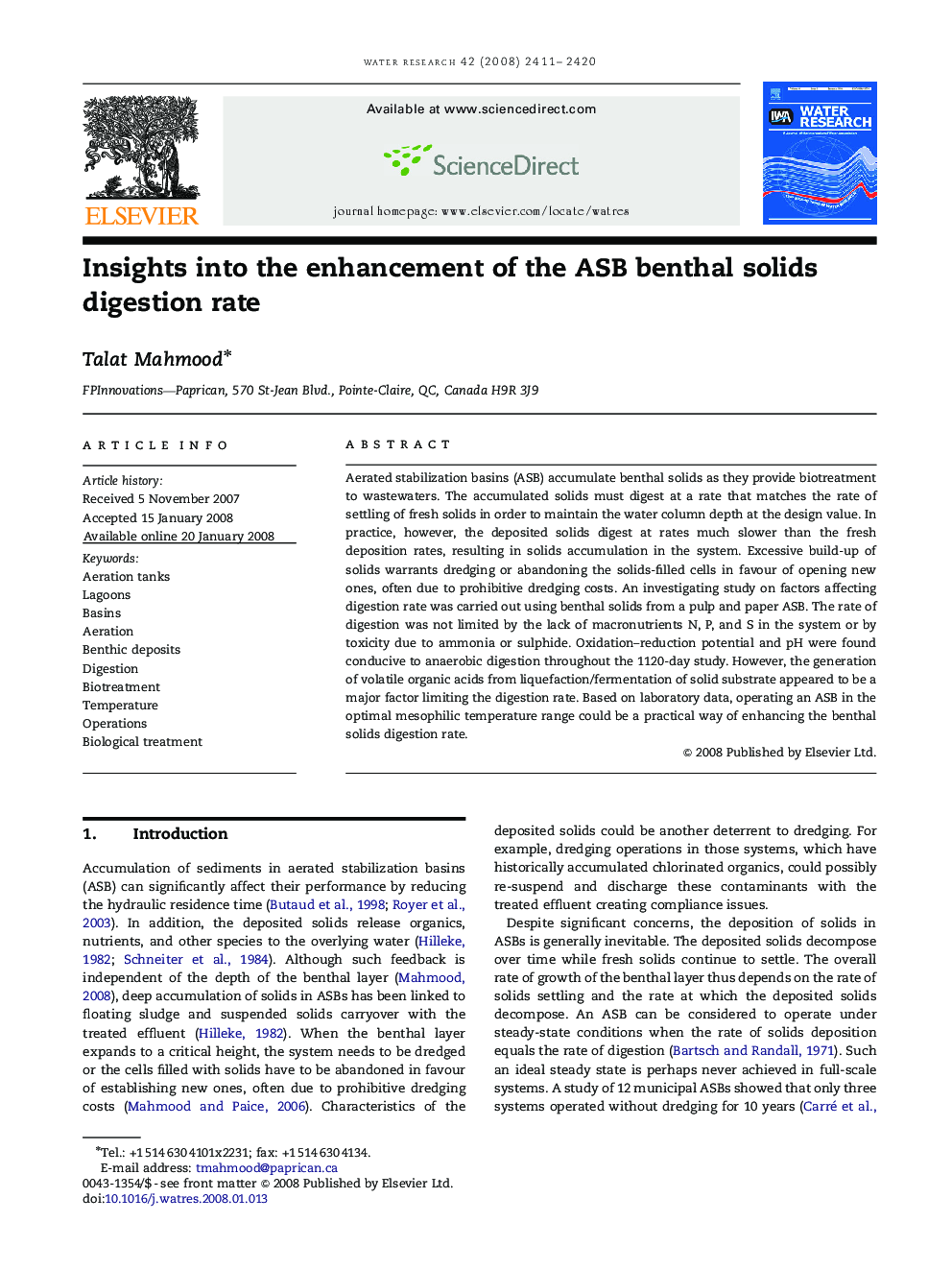| Article ID | Journal | Published Year | Pages | File Type |
|---|---|---|---|---|
| 4484751 | Water Research | 2008 | 10 Pages |
Aerated stabilization basins (ASB) accumulate benthal solids as they provide biotreatment to wastewaters. The accumulated solids must digest at a rate that matches the rate of settling of fresh solids in order to maintain the water column depth at the design value. In practice, however, the deposited solids digest at rates much slower than the fresh deposition rates, resulting in solids accumulation in the system. Excessive build-up of solids warrants dredging or abandoning the solids-filled cells in favour of opening new ones, often due to prohibitive dredging costs. An investigating study on factors affecting digestion rate was carried out using benthal solids from a pulp and paper ASB. The rate of digestion was not limited by the lack of macronutrients N, P, and S in the system or by toxicity due to ammonia or sulphide. Oxidation–reduction potential and pH were found conducive to anaerobic digestion throughout the 1120-day study. However, the generation of volatile organic acids from liquefaction/fermentation of solid substrate appeared to be a major factor limiting the digestion rate. Based on laboratory data, operating an ASB in the optimal mesophilic temperature range could be a practical way of enhancing the benthal solids digestion rate.
